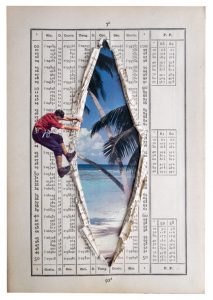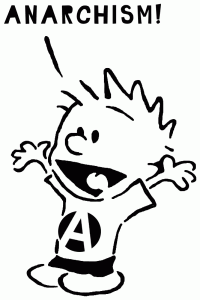technological advances in communication tools have been part of the impetus to rethink the divisive and hierarchical categorizing of literature and orality, and [i’ve] suggested that this is happening for a number of reasons. I’d like you to consider two aspects of digital literature: 1) social media tools that enable widespread publication, without publishers, and 2) hypertext, which is the name for the text that lies beyond the text you are reading, until you click. how do you think these capabilities might be impacting literature and story?
– question posed by erika paterson.

in her article on orality, courtney macneil suggests that the ways in which the technological advance of the worldwide web have obscured the differences between oral and literal communication have been a catalyst for re-envisioning the capabilities and limitations of both.
erika paterson in her lecture on story and literature explains how the capabilities of social media tools that enable widespread publication without the need for any middle man publisher and access to hypertext, “text that lies beyond the text being read”, have both played a part in expanding the communicator’s power while diminishing restrictions of how the information is being communicated. the result of this greater power for the communicator and wider realm of mediums has resulted in changes for how the modern world relates to and forms literature and story-telling.
published literature has been the authority on storytelling in the colonial western world for centuries. ever since the beginning of imperial civilziations, only text that was meticulously edited, printed, published and distributed was considered literary. frank kermode ascertains in his book “the classic” that classic literature is entirely dependent on imperial qualities – he pointed out that it was countries such as spain, britain, france, italy, russia and germany that had the most influential classic writers. this observation implies not only that it was imperial powers that had the most access to means of preserving documentation, but also that imperial powers only valued their own works, as conquerors, and that documentation by smaller or conquered nations were more prone to be lost, destroyed and/or not given credence. this also ties into how the oral traditions of many cultures have been dismissed as falling beneath literature on the hierarchy of reliable documentation.
the worldwide web has changed our cultural social groupings in that where once we were dependent upon family and social groups who lived in close proximity to us for the communication of information, or various levels of governments and organizations that controlled the media being broadcast or mailed to our homes, we are suddenly part of a global community that has instantaneous access with each other. social media allows the voice of a single person to be heard internationally.
furthermore, as the worldwide web is more available to the public then esteemed publishing opportunities, the power dynamics that social, cultural or monetary capital typically offer for platforms of expression are less overpowering. although having access to a computer and a public following will require some amount of funds, social connection and/or privilege, the computer itself does not distinguish between positions of privilege. anyone who can get access to a computer can type their opinion or story and post it for all to see. not only are people attempting to access wider audiences, but they are actually getting a wider audience because suddenly, through social media, we find millions of people scanning the internet on a daily basis to hear and listen and see other peoples stories.

on one level, we lose the power of being in the presence of a live singer-songwriter, or listening to a poet perform a reading. however what we lose through internet in physical presence of the storyteller, we make up for in the accessibility of stories – in a single week we could listen, read and watch the stories of hundreds of different people all across the globe from the comfort of our own homes or internet cafes.
i would argue that those dedicated to presenting stories with different views within political subcultures and counter cultural circles of our world have always found a way to make it happen. elke zobl reminds us that as early as the first printing presses were running, self-published literature was being created, such as martin luther’s controversial “ninety-five theses”.
yet internet platforms still offer an unprecedented access to varying information and points of views of different peoples from all over the world, one in which poor and wealthy, young and old, black and white all have access to listen and tell stories. we are no longer as subject to our location in the world and to the published written works of the most affluent people of the strongest nation states for the access to and the sharing of stories. but with the influx of information available, what are the stories that are actually being heard through the worldwide web?
works cited
Borrows, John. “Listening for Change: The Courts and Oral Tradition”. Centre For First Nations Governance. n.d. fngovernance.org/ncfng_research/oralhistory.pdf. Accessed 18 Sept. 2016.
Kermode, Frank. The Classic: Literary Images of Permanence and Change. Boston: Harvard University P, 1983. Print.
Macneil, Courtney. “Orality”. The Chicago School of Media Theory. (2007): n. page. lucian.uchicago.edu/blogs/mediatheory/keywords/orality/. Accessed 18 Sept 2016.
Paterson, Erika. “Lesson 1.2 – Story and Literature”. ENGL 4710 Canadian Literary Genres: Canadian Studies. University of British Columbia. Nov. 2013. blogs.ubc.ca/courseblogsis_ubc_engl_470a_99c_2014wc_44216-sis_ubc_engl_470a_99c_2014wc_44216_2517104_1/unit-1/lesson-12/. Accessed 18 Sept. 2016.
Soyer, Erwan. “Tahiti”. 2011. Erwan Soyer. erwan-soyer.tumblr.com. Accessed 18 Sept 2016.
Zobl, Elke. “Zines: zine history, the n\zine network, topics, and teaching zines in classrooms”. grrrl zines. 2004. www.grrrlzines.net/overview.htm. Accessed 18 Sept 2016.
 Follow
Follow